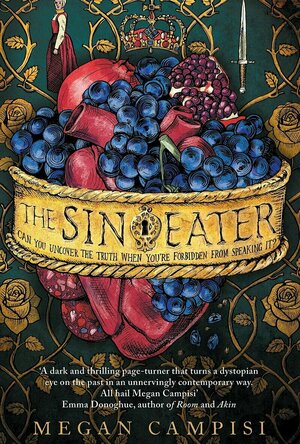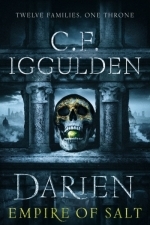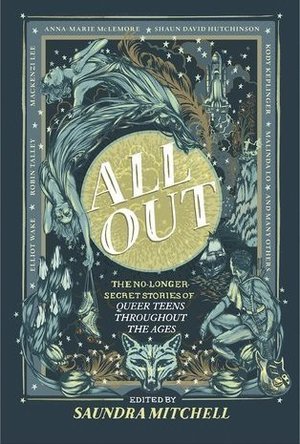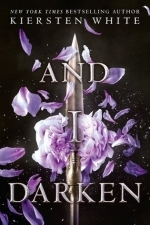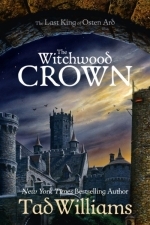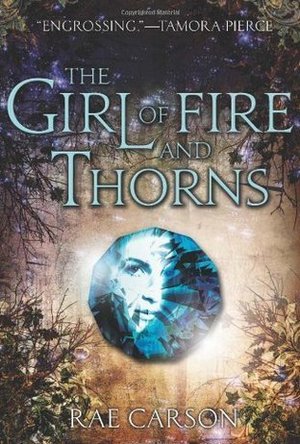Search
Search results
ClareR (5879 KP) rated The Sin Eater in Books
Oct 5, 2021
The Sin Eater is set in an alternative Elizabethan England, with so much attention to detail that it could be true! I mean, there WERE Sin Eaters, but in reality I don’t think their diets were as varied and rich-sounding. I had a google, and it seems as though some bread was left on a coffin for a Sin Eater to eat. Until, that is, the Church got involved. Sin Eating had to many Pagan connotations.
Each sin in this book has a different food, which is how 14yr old May Owens learns that something sinister is going on in the Queen’s court.
May can’t tell anyone what she knows. It’s a terrible punishment for a young girl: sentenced to a life of silence and ostracised by everyone - all because she stole bread to eat. Ok, she’ll never go hungry, but some of the combinations are pretty grim!
I really enjoyed reading about the travelling entertainers, and the homeless people who decide that living with a walking, breathing curse (May) is worth the risk when it’s cold outside.
This is a really atmospheric book, steeped in the sights, sounds and smells of a 16th Century England-type-place, and it ticked a lot of boxes for me as a historical fiction, occasional fantasy fan (amongst the other types of fiction!!)
Each sin in this book has a different food, which is how 14yr old May Owens learns that something sinister is going on in the Queen’s court.
May can’t tell anyone what she knows. It’s a terrible punishment for a young girl: sentenced to a life of silence and ostracised by everyone - all because she stole bread to eat. Ok, she’ll never go hungry, but some of the combinations are pretty grim!
I really enjoyed reading about the travelling entertainers, and the homeless people who decide that living with a walking, breathing curse (May) is worth the risk when it’s cold outside.
This is a really atmospheric book, steeped in the sights, sounds and smells of a 16th Century England-type-place, and it ticked a lot of boxes for me as a historical fiction, occasional fantasy fan (amongst the other types of fiction!!)
ClareR (5879 KP) rated She Who Became The Sun in Books
Jun 13, 2023
She Who Became the Sun is a book that I could really immerse myself in. It took its time over laying the foundations of what will continue to be, I’m sure, an epic story. This is a re-imagining of the life and rise of Zhu Yuanzhang - the peasant rebel who expelled the Mongols, unified China and became the founding Emperor of the Ming dynasty. So, no small story then!
Shelley Parker-Chan has added a twist to the story, though. The Zhu Yuanzhang in this story is actually female. Born a girl, she steals her brothers identity when he dies so that she can survive - girls were not important enough to survive otherwise. She decides to live her brothers life, and as a fortune teller has foretold, she will rise to great heights in his name. And this process starts by Zhu being taken in and educated by the monks at a monastery.
This isn’t fantasy as much as it is historical fiction. Ok, there is a little bit of magic, but I took that as being an explanation of a leaders charisma. The writing IS beautiful, particularly the descriptions of the relationship between Zhu and the eunuch General Ouyang, and the queer story of Zhu and her wife.
We’re left on a bit of a cliffhanger, I’ll warn you, but we won’t have long to wait for the sequel!
Shelley Parker-Chan has added a twist to the story, though. The Zhu Yuanzhang in this story is actually female. Born a girl, she steals her brothers identity when he dies so that she can survive - girls were not important enough to survive otherwise. She decides to live her brothers life, and as a fortune teller has foretold, she will rise to great heights in his name. And this process starts by Zhu being taken in and educated by the monks at a monastery.
This isn’t fantasy as much as it is historical fiction. Ok, there is a little bit of magic, but I took that as being an explanation of a leaders charisma. The writing IS beautiful, particularly the descriptions of the relationship between Zhu and the eunuch General Ouyang, and the queer story of Zhu and her wife.
We’re left on a bit of a cliffhanger, I’ll warn you, but we won’t have long to wait for the sequel!
Uptown Oracle (24 KP) rated Darien in Books
Jun 30, 2017
A good venture into the fantasy genre
Darien starts slow as every person is introduced. Side characters are introduced and the world is built up. Iggulden has a world filled with detail. With his past of historical fiction this isn't surprising. The detail is extremely immersive and you get to know the world really well. I loved the world it was set in, it was an old world, with problems for the lower classes. I also enjoyed that we weren't following one of the royals or twelve houses that are the higher classes within Darien.
At times, Darien is a struggle to read. The writing style is complex and full of intricacies. A lot of focus is needed when reading Darien because of this. I often read before bed, but when I'm winding down this is not the right book. Changing POV's kept confusing me because of lack of focus. It's very similar to Lord of the Rings or ASOIAF books in that sense.
What I enjoyed was the characters are not labelled good or bad. They all have both good and bad traits which are shown throughout the book. This gave the characters so much depth. There was the problem that I didn't know who I was routing for though as sometimes the characters were on opposing 'sides' of the conflict.
The character's storylines could have also been more entwined than they were. Although it was nice to see different POV's from each character, often I questioned whether it was necessary for the overarching plot. For example, the old man, Tellius, did we really need his part of the story for the story to make sense? I don't think we needed the background information. For some characters it was just a mention of missing each other at the same place by mere minutes. I would have been more coherent if it was all interlinked somehow.
Overall, Darien was a nice read. Iggulden has used his historical fiction background to ensure descriptive world building and well written politics. There were just some aspects that I personally didn't enjoy as much as others would.
At times, Darien is a struggle to read. The writing style is complex and full of intricacies. A lot of focus is needed when reading Darien because of this. I often read before bed, but when I'm winding down this is not the right book. Changing POV's kept confusing me because of lack of focus. It's very similar to Lord of the Rings or ASOIAF books in that sense.
What I enjoyed was the characters are not labelled good or bad. They all have both good and bad traits which are shown throughout the book. This gave the characters so much depth. There was the problem that I didn't know who I was routing for though as sometimes the characters were on opposing 'sides' of the conflict.
The character's storylines could have also been more entwined than they were. Although it was nice to see different POV's from each character, often I questioned whether it was necessary for the overarching plot. For example, the old man, Tellius, did we really need his part of the story for the story to make sense? I don't think we needed the background information. For some characters it was just a mention of missing each other at the same place by mere minutes. I would have been more coherent if it was all interlinked somehow.
Overall, Darien was a nice read. Iggulden has used his historical fiction background to ensure descriptive world building and well written politics. There were just some aspects that I personally didn't enjoy as much as others would.
I have no explanation for why young adult story anthologies are SO. GOOD. But they are. This particular one revolves around queer teens in historical times. That's about the only commonality; the genres vary from normal fiction to fantasy to magical realism. There are gay, lesbian, transgender, and asexual teens represented. I am a little annoyed that there don't seem to be any bisexual teens in the anthology; it could be argued that at least one if not more are bi simply because they had opposite-sex relationships before the same-sex romance in the story, but that's also common before realizing your sexuality/coming out. No one is explicitly bisexual in this book. There were also two transmen but no transwomen.
There was a decent amount of cultural diversity while remaining mostly centered in the US; Chinatown in 1950s San Francisco, 1870s Mexico, Colonial New England, 1930s Hispanic New Mexico, Robin Hood-era Britain.
The stories were really good, I just wish they'd included a bisexual story and a transwoman. They did have an asexual girl, which is a sexuality often overlooked, so that was nice.
It's a great collection of stories, just limited in scope. They could have cut a few F/F stories and added in bisexual, nonbinary, and transwomen, and lived up to the open umbrella of the "queer" label a bit more. I really enjoyed it, I think I'm just a little disappointed because I was expecting more of the spectrum.
There was a decent amount of cultural diversity while remaining mostly centered in the US; Chinatown in 1950s San Francisco, 1870s Mexico, Colonial New England, 1930s Hispanic New Mexico, Robin Hood-era Britain.
The stories were really good, I just wish they'd included a bisexual story and a transwoman. They did have an asexual girl, which is a sexuality often overlooked, so that was nice.
It's a great collection of stories, just limited in scope. They could have cut a few F/F stories and added in bisexual, nonbinary, and transwomen, and lived up to the open umbrella of the "queer" label a bit more. I really enjoyed it, I think I'm just a little disappointed because I was expecting more of the spectrum.
Lyndsey Gollogly (2893 KP) rated Wages of Sin ( Cin Craven book 1) in Books
Mar 13, 2022
46 of 230
Book
Wages of Sin (Cin Craven Book 1)
Jenna MacLaine
⭐️⭐️⭐️⭐️⭐️
Dulcinea Macgregor Craven is the only child of a wealthy English viscount. She is also a natural witch, one of a long line of Macgregor witches on her mother's side. When her parents are killed in a carriage accident, Dulcie doesn't think her life can get much worse. Then an old childhood friend returns to the country a little bit differently than he left and vows that nothing will stop him from possessing her and her magic.
In a desperate attempt to save her life, Dulcie summons a trio of vampires called The Righteous to her aid. With the help of The Righteous and four human friends, Dulcie attempts to thwart her enemy's plans to capture her and use her magic for his own evil purposes.
Even as she falls in love for the first time, Dulcie realizes that she may have to make the ultimate sacrifice in order to save the world.
I absolutely loved this book historical fiction meets urban fantasy just couldn’t put it down. Dulci is brilliant and I love the Righteous especially Justine. Not what I was expecting at all. As Dulcie becomes CIN she develops more and into a much stronger character and female lead! I’m hoping to learn more on the werewolf “woof” in the next book.
Book
Wages of Sin (Cin Craven Book 1)
Jenna MacLaine
⭐️⭐️⭐️⭐️⭐️
Dulcinea Macgregor Craven is the only child of a wealthy English viscount. She is also a natural witch, one of a long line of Macgregor witches on her mother's side. When her parents are killed in a carriage accident, Dulcie doesn't think her life can get much worse. Then an old childhood friend returns to the country a little bit differently than he left and vows that nothing will stop him from possessing her and her magic.
In a desperate attempt to save her life, Dulcie summons a trio of vampires called The Righteous to her aid. With the help of The Righteous and four human friends, Dulcie attempts to thwart her enemy's plans to capture her and use her magic for his own evil purposes.
Even as she falls in love for the first time, Dulcie realizes that she may have to make the ultimate sacrifice in order to save the world.
I absolutely loved this book historical fiction meets urban fantasy just couldn’t put it down. Dulci is brilliant and I love the Righteous especially Justine. Not what I was expecting at all. As Dulcie becomes CIN she develops more and into a much stronger character and female lead! I’m hoping to learn more on the werewolf “woof” in the next book.
Jamie (131 KP) rated And I Darken (The Conqueror's Saga #1) in Books
Jul 15, 2017
Well developed characters with complex relationships (1 more)
Engaging story
What if Vlad the Impaler was a girl? An engrossing historical dark fantasy
I was surprised to find that the story had two main characters, Lada and her younger brother Radu. The story is told from their alternating points of view from childhood up to early adulthood. The siblings are sent from their homeland as hostages to the sultan to ensure their father’s loyalty. The story follows the siblings through their journey of self discovery as their fates become entangled with Mehmed II, the virtuous son of the sultan with dreams of conquest.
Lada is fierce even from a young age, a vicious child that is often described as being ugly. She is abrasive and domineering with an intense hunger to claim and rule over what she views as hers. She is frustrated by the limitations placed on her for being a woman, craving power and freedom given to her brother for the simple fact that he is a man. Lada wrestles with her femininity, at some times rejecting it entirely and at other times trying to accept herself and her needs as a woman. She idolizes her father and later the janissaries, wanting desperately to be recognized and accepted. Lada seeks to return home to her mother Wallachia, her birthright.
In stark contrast to Lada, he is sensitive and beautiful. As a child he cried easily and like his sister he also desperately sought affection and acceptance from others. Beginning with their father, their nursemaid, Lada, and eventually Mehmed. While Lada seeks power through brute strength Radu finds a means to his ends through manipulation, using his attractiveness to gain the respect and trust of the people around him. Radu finds his home in Islam and the empire under the watchful eye of the father, the Sultan.
The parallels between Lada and Radu are a subversion of the classical gendered stereotypes placed on men and women. The bonds between Lada, Radu, and Mehmed were incredibly complex and toxic for all involved. The book doesn’t shy away at all from the hideous aspects of love and jealousy and gives an honest and intimate portrayal of the characters as they stumble into adulthood.
This book is loosely based on three very real historical figures: Vlad the Impaler, Radu the Fair, and Mehmed II. Despite this, the book is in no way to be considered to be historically factual, as noted by the author. Lada’s gender change aside there is definitely many pieces of history that are changed deliberately to make room not only for a new romance but also for a more neutral portrayal of the character. This is definitely a medieval fantasy and alternate history book which I’m quite frankly fine with and was able to enjoy just the same. The setting and characters were fairly convincing for the time period and appreciated the research and detail that was put into the book to make it at least believable.
I expected a little more war and battle in this book but there was actually next to none. There was much more focus on the political aspects of the story which I think was alright considering the ages of the main characters. I do expect to see more combat in the next book though, so maybe Lada will actually be the brutal warrior princess she was destined to be.
Despite my mild complaints about the historical aspects of this book I thoroughly enjoyed myself reading it. I was initially intimidated by the page count for this book but found myself flying through the pages. And I Darken is masterfully written and really polished compared to a lot of YA literature. Definitely one of my favorites and I am absolutely ecstatic to continue the series.
Lada is fierce even from a young age, a vicious child that is often described as being ugly. She is abrasive and domineering with an intense hunger to claim and rule over what she views as hers. She is frustrated by the limitations placed on her for being a woman, craving power and freedom given to her brother for the simple fact that he is a man. Lada wrestles with her femininity, at some times rejecting it entirely and at other times trying to accept herself and her needs as a woman. She idolizes her father and later the janissaries, wanting desperately to be recognized and accepted. Lada seeks to return home to her mother Wallachia, her birthright.
In stark contrast to Lada, he is sensitive and beautiful. As a child he cried easily and like his sister he also desperately sought affection and acceptance from others. Beginning with their father, their nursemaid, Lada, and eventually Mehmed. While Lada seeks power through brute strength Radu finds a means to his ends through manipulation, using his attractiveness to gain the respect and trust of the people around him. Radu finds his home in Islam and the empire under the watchful eye of the father, the Sultan.
The parallels between Lada and Radu are a subversion of the classical gendered stereotypes placed on men and women. The bonds between Lada, Radu, and Mehmed were incredibly complex and toxic for all involved. The book doesn’t shy away at all from the hideous aspects of love and jealousy and gives an honest and intimate portrayal of the characters as they stumble into adulthood.
This book is loosely based on three very real historical figures: Vlad the Impaler, Radu the Fair, and Mehmed II. Despite this, the book is in no way to be considered to be historically factual, as noted by the author. Lada’s gender change aside there is definitely many pieces of history that are changed deliberately to make room not only for a new romance but also for a more neutral portrayal of the character. This is definitely a medieval fantasy and alternate history book which I’m quite frankly fine with and was able to enjoy just the same. The setting and characters were fairly convincing for the time period and appreciated the research and detail that was put into the book to make it at least believable.
I expected a little more war and battle in this book but there was actually next to none. There was much more focus on the political aspects of the story which I think was alright considering the ages of the main characters. I do expect to see more combat in the next book though, so maybe Lada will actually be the brutal warrior princess she was destined to be.
Despite my mild complaints about the historical aspects of this book I thoroughly enjoyed myself reading it. I was initially intimidated by the page count for this book but found myself flying through the pages. And I Darken is masterfully written and really polished compared to a lot of YA literature. Definitely one of my favorites and I am absolutely ecstatic to continue the series.
Hazel (1853 KP) rated The Witchwood Crown in Books
Jul 22, 2017
Gosh, what a long book!
Review I received this book for free through Goodreads First Reads.
Approximately 30 years ago, the first novel in Tad Williams’ Memory, Sorrow and Thorn trilogy was published. Fans all over the world adored this high fantasy story about a young kitchen boy, Simon, who goes on to become King of Ostern Ard. Now Williams’ has returned to the fictional lands with a follow-up trilogy, The Last King of Ostern Ard.
Three decades have been and gone since the ending of the previous series. The Witchwood Crown explores the changes that have occurred since the epic story finished, unfortunately, things are not looking good. Simon and his wife, Miriamele, have suffered a few personal tragedies, leaving them with two fatherless grandchildren. Young Lillia is an out spoken child who expostulates with everyone in order to get her way – she is a princess after all. Morgan, the heir, is rather obtuse in comparison; a lazy young man whose vexatious behaviour constantly causes the Royals to despair. However, this is only a tiny problem in their restless kingdom.
The Norn Queen, an antagonist of the original story, has been asleep for the past few decades. Mortals foolishly believed they were safe from the evil character, yet unexpectedly, she has awoken and is determined to destroy humanity. Too weak to carry out her own plans, she infiltrates the minds of the members of her immortal race, sending them off on perilous missions, for example, to extract blood from a live dragon.
As well as Simon’s city and the Norns, there are several more important characters and locations, each with their own on going storyline. A mix of assiduous and animus personas shake up the peace that had settled at the closing of Memory, Sorrow and Thorn. It is almost impossible to fathom whom the good and bad are, especially when reading from so many different points of view.
If the 700 odd pages did not already give it away, the inclusion of maps and appendixes prove the book to contain an extremely lengthy tale. Flitting from one set of characters to another, it is hard to keep up with the hundreds of names and roles. It does not help that the majority are unpronounceable, full of additional apostrophes making them as unlike English names as possible – a usual trait of fantasy fiction.
Not only are the names difficult to pronounce, the words and vernacular some of the characters use are just as dumbfounding. Thankfully, definitions are provided at the back of the book, but to keep flipping between pages can get quite tedious after a while.
The sheer number of characters makes it difficult to unearth the main storyline. In fact, there does not appear to be a strong plot at all. Judging by the ending, it is as though The Witchwood Crown is only an introduction to the narrative that will begin in the following book.
Reading the primary series first will have its benefits, however, it is not mandatory. New readers, like myself, are able to pick up snippets of past events and piece together the lead up to the current scenario. Although a work of historical fantasy, it is possible to see elements of real life within the story. Dragons and fairies may not exist in our world, but similar beliefs and systems are relatable. For instance, the days of the week are obviously based on the English names: Sunday, Moonday, Tiasday, Udunsday, Drorsday, Frayday and Satrinsday.
The most striking connection between real and imagined is the religious beliefs of different clans and species. Many of the mortals have taken, up what is suggested to be, a new religion. There are so many similarities; it is undoubtedly based on Christianity. Likewise, other beliefs are comparable to pagan rites and ceremonies of the distant past.
The Witchwood Crown is not an easy book to read, neither is it all that exciting. On the other hand, it is interesting. It is equivalent to reading historical information with the added benefit of mythical creatures. This is not a quick read; therefore you need to be dedicated to sitting down and pacing through the story. It is definitely targeted at high fantasy fans – in fact, the original stories influenced George R. R. Martin (A Game of Thrones) – who are used to the length and complexity of the narrative
Approximately 30 years ago, the first novel in Tad Williams’ Memory, Sorrow and Thorn trilogy was published. Fans all over the world adored this high fantasy story about a young kitchen boy, Simon, who goes on to become King of Ostern Ard. Now Williams’ has returned to the fictional lands with a follow-up trilogy, The Last King of Ostern Ard.
Three decades have been and gone since the ending of the previous series. The Witchwood Crown explores the changes that have occurred since the epic story finished, unfortunately, things are not looking good. Simon and his wife, Miriamele, have suffered a few personal tragedies, leaving them with two fatherless grandchildren. Young Lillia is an out spoken child who expostulates with everyone in order to get her way – she is a princess after all. Morgan, the heir, is rather obtuse in comparison; a lazy young man whose vexatious behaviour constantly causes the Royals to despair. However, this is only a tiny problem in their restless kingdom.
The Norn Queen, an antagonist of the original story, has been asleep for the past few decades. Mortals foolishly believed they were safe from the evil character, yet unexpectedly, she has awoken and is determined to destroy humanity. Too weak to carry out her own plans, she infiltrates the minds of the members of her immortal race, sending them off on perilous missions, for example, to extract blood from a live dragon.
As well as Simon’s city and the Norns, there are several more important characters and locations, each with their own on going storyline. A mix of assiduous and animus personas shake up the peace that had settled at the closing of Memory, Sorrow and Thorn. It is almost impossible to fathom whom the good and bad are, especially when reading from so many different points of view.
If the 700 odd pages did not already give it away, the inclusion of maps and appendixes prove the book to contain an extremely lengthy tale. Flitting from one set of characters to another, it is hard to keep up with the hundreds of names and roles. It does not help that the majority are unpronounceable, full of additional apostrophes making them as unlike English names as possible – a usual trait of fantasy fiction.
Not only are the names difficult to pronounce, the words and vernacular some of the characters use are just as dumbfounding. Thankfully, definitions are provided at the back of the book, but to keep flipping between pages can get quite tedious after a while.
The sheer number of characters makes it difficult to unearth the main storyline. In fact, there does not appear to be a strong plot at all. Judging by the ending, it is as though The Witchwood Crown is only an introduction to the narrative that will begin in the following book.
Reading the primary series first will have its benefits, however, it is not mandatory. New readers, like myself, are able to pick up snippets of past events and piece together the lead up to the current scenario. Although a work of historical fantasy, it is possible to see elements of real life within the story. Dragons and fairies may not exist in our world, but similar beliefs and systems are relatable. For instance, the days of the week are obviously based on the English names: Sunday, Moonday, Tiasday, Udunsday, Drorsday, Frayday and Satrinsday.
The most striking connection between real and imagined is the religious beliefs of different clans and species. Many of the mortals have taken, up what is suggested to be, a new religion. There are so many similarities; it is undoubtedly based on Christianity. Likewise, other beliefs are comparable to pagan rites and ceremonies of the distant past.
The Witchwood Crown is not an easy book to read, neither is it all that exciting. On the other hand, it is interesting. It is equivalent to reading historical information with the added benefit of mythical creatures. This is not a quick read; therefore you need to be dedicated to sitting down and pacing through the story. It is definitely targeted at high fantasy fans – in fact, the original stories influenced George R. R. Martin (A Game of Thrones) – who are used to the length and complexity of the narrative
Dana (24 KP) rated The Girl of Fire and Thorns (Fire and Thorns, #1) in Books
Mar 23, 2018
This book was very good. I enjoyed listening to it when I had a free chance. I gave it a four out of five because there were a few moments, especially in the beginning, where I found it hard to connect to the characters. Elisa seemed like she was just self-deprecating for a lot of the book and that got tiresome after a while. When she started to grow as a character, I started to like it more. I wish there wasn't that love triangle in the story, but I understand why it had to be there. I just feel like these love triangles are in most books and I want there to be more without it (That's just a personal note) There were even some relationships between characters that I thought were going to pan out to be romantic, but didn't. But who knows, there are other books in the series after all! Some of the puzzles that the characters had to solve I felt were kind of predictable but others were genuinely surprising. I fell in love with so many side characters and I wish we had been able to see more of them throughout the story. While Elisa is a compelling narrator, I felt like the other characters had more to them. This was a great break from the myriad of historical or classic novels that I have had to read recently. If you like fantasy and adventure stories, pick this up. I really recommend it.
Merissa (12892 KP) rated Bound in Flame (The Hawaiian Ladies’ Riding Society #1) in Books
Aug 3, 2020
Bound in Flame is the debut book by this author and is also the first in The Hawaiian Ladies’ Riding Society series. Set in the early 1900's we find out about the Suffragette movement as seen by a young (eighteen-year-old) Letty. She wants to go to school and become a vet although she is not sure that it's possible. Instead of being a woman with her feet set firmly in logic, Letty finds out that she is one of the magical Gates and her powers, her flames as she calls them, are not just there to get her into trouble. Letty knows who she is and also knows what she is up against, more so than Timothy, our main male, in some cases.
This is a wondrous tale of a time gone by, told with a sense of gentility. It has a historical setting but with fantasy elements. I have no idea if the settings, dates, occasions, people, etc. are real but, to be honest, I don't really care either. I thoroughly enjoyed the flow of this story, with the wonderful characters you learn about.
I thought this was a brilliant start to a series I want to read more from. Thoroughly enjoyable, a good long story to sink into, with settings and characters that leap off the page. Absolutely recommended by me.
* A copy of this book was provided to me with no requirements for a review. I voluntarily read this book, and the comments here are my honest opinion. *
Merissa
Archaeolibrarian - I Dig Good Books!
This is a wondrous tale of a time gone by, told with a sense of gentility. It has a historical setting but with fantasy elements. I have no idea if the settings, dates, occasions, people, etc. are real but, to be honest, I don't really care either. I thoroughly enjoyed the flow of this story, with the wonderful characters you learn about.
I thought this was a brilliant start to a series I want to read more from. Thoroughly enjoyable, a good long story to sink into, with settings and characters that leap off the page. Absolutely recommended by me.
* A copy of this book was provided to me with no requirements for a review. I voluntarily read this book, and the comments here are my honest opinion. *
Merissa
Archaeolibrarian - I Dig Good Books!
ClareR (5879 KP) rated The Silence Factory in Books
Jul 16, 2024
I’m an arachnophobe. I run from rooms when there’s a particularly large spider around - and I still loved this book. I have to admit, I did have to visualise them as chunkier and furrier with fewer legs. Web-weaving Jack Russells, if you will 🤦🏼♀️ But that’s the joy of reading!
A factory in Telverton seems to have acquired a particular breed of spider whose web, when spun into a silken fabric, can bring silence to the person/ people sitting inside. However, if the fabric is the other way round, it produces sounds that can make people go mad (they don’t make too much of that fact). So, no the best factory to work in, then!
I enjoyed the two timelines: the discovery of the spiders in 1820, told through the journals of Sophia Ashmore-Percy; and the manufacture of the silk in a factory town decades later along with an audiologist who goes to work for Sir Edward Ashmore-Percy. He has the task of helping Sir Ashmore-Percy’s deaf daughter to hear.
I love how Bridget Collins mixes historical fiction and fantasy, and makes it all seem perfectly reasonable. There’s a lot to be said in this story about taking advantage of people for profit (in the factory in particular) and how nature can be used for man’s own ends, regardless of the consequences. Humans aren’t painted in the best of light, and I actually felt sorry for the spiders 🕷️🕷️🕷️
Still don’t like spiders though.
A factory in Telverton seems to have acquired a particular breed of spider whose web, when spun into a silken fabric, can bring silence to the person/ people sitting inside. However, if the fabric is the other way round, it produces sounds that can make people go mad (they don’t make too much of that fact). So, no the best factory to work in, then!
I enjoyed the two timelines: the discovery of the spiders in 1820, told through the journals of Sophia Ashmore-Percy; and the manufacture of the silk in a factory town decades later along with an audiologist who goes to work for Sir Edward Ashmore-Percy. He has the task of helping Sir Ashmore-Percy’s deaf daughter to hear.
I love how Bridget Collins mixes historical fiction and fantasy, and makes it all seem perfectly reasonable. There’s a lot to be said in this story about taking advantage of people for profit (in the factory in particular) and how nature can be used for man’s own ends, regardless of the consequences. Humans aren’t painted in the best of light, and I actually felt sorry for the spiders 🕷️🕷️🕷️
Still don’t like spiders though.
